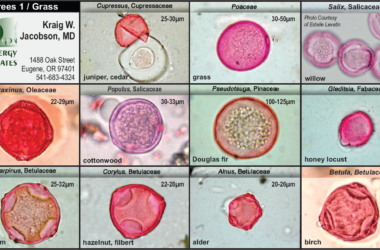
A common question I get in the store is how to ”clean out” our livers.
First of all, our liver does not ”store” toxins, but along with many other duties, our liver is part of our digestive and detoxification system. Supporting liver function should be a daily goal for us all, but it can be a great idea to periodically give our liver some extra lovin’.
It is very important to make sure all of your elimination pathways are working. These pathways are working when we use the bathroom, breath and sweat.
This next part may be a bit indelicate to some, but it is actually normal to use the restroom as many times as the meals you eat. If you eat breakfast, lunch and dinner, then three productive toilet visits is normal. There is no point in exploring how to support the detoxing we do in each cell, via our lungs, kidneys, lymphatic and digestive system if we are not ”regular.” Eating a nutrient-dense diet, and including high fiber liver-loving vegetables and fruits, will help with regularity.
Exercise is important; we remove wastes through the skin as we perspire and through our breath as our lungs work. Walking, jogging and rebounding will stimulate the lymphatic system to remove waste, and if we are properly hydrated our kidneys will have a healthier volume of blood to filter.
Our bodies use a lot of energy to digest our meals, and a juice cleanse will supply us with the nutrients we need to function in an easy-to-digest form. Since vegetable juice has very little sugar while offering an abundance of vitamins, minerals, enzymes and phytonutrients, it may be helpful for weight loss as well. It offers what our bodies need to fight cravings and to keep us healthy.
A juicer is not a blender, but rather through a mechanical process separates the juice from the harder to digest pulp or fibrous parts of the fruits or veggies. If you are new to juicing, look for an inexpensive model, you may even find a used juicer at a thrift store or online.
Minimize your investment as you explore which juicer best suits your needs. Choose a juicer that ejects the pulp into a canister as opposed to the juicers that collect the pulp in an inner basket. These juicers may remove a bit more juice, but you will have to stop often to empty and clean up … not the most user-friendly choice, and they often get relegated to the cabinet.
Here are few simple tips for juicing:
1. Use organic or unsprayed and local produce. Your goal for this juice cleanse is to support the elimination of toxins, so avoid the additional chemical toxins found in conventional produce.
2. Rinse your produce before juicing. There are fruit and veggie washes available in the produce section of your grocers. Cut away any moldy, bruised or damaged sections before juicing.
3. The skins of citrus fruits such as orange, tangerine or grapefruit have indigestible volatile oils that can be irritating to your digestive tract, so always peel them before juicing. The peels of organic lemons and limes can be juiced.
4. Make sure to remove pits and stones in fruit such as peaches, plums, and cherries.
5. The stems and leaves of most produce such as beets can be included in your juice.
6. Use fruits and veggies with a high water content, they are great candidates for juicing. Bananas, mangoes, papayas, and avocado have low water contents, so will not juice well. You can add them later on to your fresh juice in the blender.
7. Cut your fruits and veggies small enough to fit in the juicer’s feed tube.
8. While your juice is freshest straight from the juicer, you can store fresh juice for 12 hours in your fridge in an opaque airtight container, though you will lose some nutrients.
9. For ease of cleaning put a plastic bag in your juicers’ pulp container. You can save your pulp to add to a soup or add it to your compost pile.
Michael Murray ND author of ”The Complete Book of Juicing,” offers this simple nutritious and cleansing fresh juice cocktail:
1 apple – low sugar and rich in plant nutrients that support antiviral and antibiotic functions
1/2 beet root with tops – contains cleansing and cardio-protective nutrients
4 carrots – rich in antioxidant such as beta-carotene and enhances your juices’ taste
2 celery stalks – anti-inflammatory for the digestive tract
1/2 cup parsley – rich in detoxifying chlorophyll
Enjoy a few glasses of this juice for as many days as you want for a cleanse, which for many may just be a spring weekend, or start any day this way for a great jump start.
As you enjoy our shift into warmer weather, give your health a boost; support your detoxification and elimination of toxins with a few days of only fresh juice. Get plenty of rest, moderate exercise, and drink plenty of pure water. Freshly extracted fruit and veggie juice can be a healthy addition to our diets, any time of year, no matter the season.
As Hippocrates suggested, ”Let your food be your medicine, and your medicine be your food.”
Salud!
*A juice cleanse may not advisable under the following circumstances: if you are pregnant, nursing, recovering from an illness or injury or have a weakened immune system. It is also suggested that those people with diabetes, many heart issues or mental illness not cleanse without a physician’s guidance. If you are under a physician’s care, using prescription medication; consult your physician before starting a cleanse.







